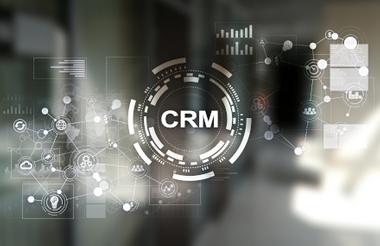In an era where technology is transforming every facet of our lives, the world of fundraising is no exception. Charity Customer Relationship Management (CRM) systems are at the forefront of this evolution, offering powerful tools to enhance the efficiency and effectiveness of nonprofit organizations. As donor expectations and digital landscapes shift, charity CRMs are evolving to meet these new challenges, making them indispensable for modern fundraising strategies.
The Rise of Charity CRMs
What is a Charity CRM?
A charity CRM is a specialized software designed to manage and analyze interactions with donors and supporters. Unlike traditional CRM systems used in businesses, charity CRMs are tailored to the unique needs of nonprofit organizations, focusing on fundraising, donor retention, and relationship management.
Early Beginnings
Initially, charity CRMs were simple databases, storing basic information about donors and their contributions. These early systems were primarily used to keep track of donations and generate reports for financial accounting.
Key Features of Modern Charity CRMs
Advanced Data Analytics
Modern charity CRMs leverage advanced data analytics to provide insights into donor behavior. These systems can analyze donation patterns, predict future contributions, and identify potential high-value donors. This enables nonprofits to tailor their fundraising strategies, ensuring they are targeting the right people with the right message.
Personalized Communication
Personalization is crucial in today’s digital age. Charity CRMs now offer sophisticated tools for personalized communication, allowing nonprofits to send targeted emails, messages, and updates to their supporters. By customizing interactions based on donor preferences and history, organizations can foster stronger relationships and improve donor retention rates.
Integration with Social Media and Other Platforms
Integration with social media and other digital platforms is a significant evolution in charity CRMs. These integrations allow nonprofits to reach a broader audience, engage with supporters on multiple channels, and streamline their fundraising efforts. Social media integration also enables real-time tracking of campaign performance, providing immediate feedback on what works and what doesn’t.
Mobile Accessibility
With the increasing use of smartphones, mobile accessibility has become a crucial feature of charity CRMs. Modern systems are designed to be mobile-friendly, allowing staff and volunteers to access donor information, manage campaigns, and track donations from anywhere. This flexibility is particularly beneficial for on-the-go fundraising events and activities.
Emerging Trends in Charity CRMs
Artificial Intelligence and Machine Learning
Artificial Intelligence (AI) and Machine Learning (ML) are revolutionizing charity CRMs. These technologies can automate routine tasks, such as data entry and donor segmentation, freeing up valuable time for staff to focus on strategic activities. AI-driven insights can also help predict donor behavior, identify potential issues, and suggest optimal times for fundraising appeals.
Enhanced Security and Data Privacy
As data breaches become more common, enhanced security and data privacy have become top priorities for charity CRMs. Modern systems are equipped with robust security measures, including encryption, multi-factor authentication, and compliance with data protection regulations like GDPR. Ensuring donor data is secure helps build trust and maintain the integrity of the organization.
Cloud-Based Solutions
Cloud-based charity CRMs are gaining popularity due to their scalability, accessibility, and cost-effectiveness. These systems allow nonprofits to access their data from any location, collaborate seamlessly with team members, and scale their operations without significant upfront investments in hardware and software.
Donor Experience Focus
The future of charity CRMs is increasingly focused on enhancing the donor experience. Features such as user-friendly donation portals, transparent impact reports, and personalized thank-you messages are becoming standard. By prioritizing the donor experience, nonprofits can build stronger, long-lasting relationships with their supporters.
The Impact of Evolving Charity CRMs on Fundraising
Increased Efficiency and Productivity
The advanced features of modern charity CRMs significantly increase the efficiency and productivity of nonprofit organizations. Automation of routine tasks, streamlined communication, and comprehensive data analysis reduce administrative burdens and allow staff to focus on mission-critical activities.
Improved Donor Retention and Engagement
Personalized communication, enhanced donor experiences, and robust data analytics contribute to improved donor retention and engagement. By understanding donor preferences and behaviors, nonprofits can create more meaningful interactions, leading to increased loyalty and sustained support.
Greater Fundraising Success
Ultimately, the evolution of charity CRMs leads to greater fundraising success. With the ability to analyze data, predict trends, and tailor strategies, nonprofits can optimize their fundraising efforts, reach more supporters, and achieve their financial goals more effectively.
Conclusion
The future of fundraising is being shaped by the continuous evolution of charity CRMs. These systems are becoming more sophisticated, incorporating advanced technologies and features that enhance efficiency, improve donor engagement, and drive fundraising success. As nonprofits navigate the ever-changing digital landscape, embracing the latest advancements in charity CRMs will be crucial for sustaining growth and achieving their missions.


